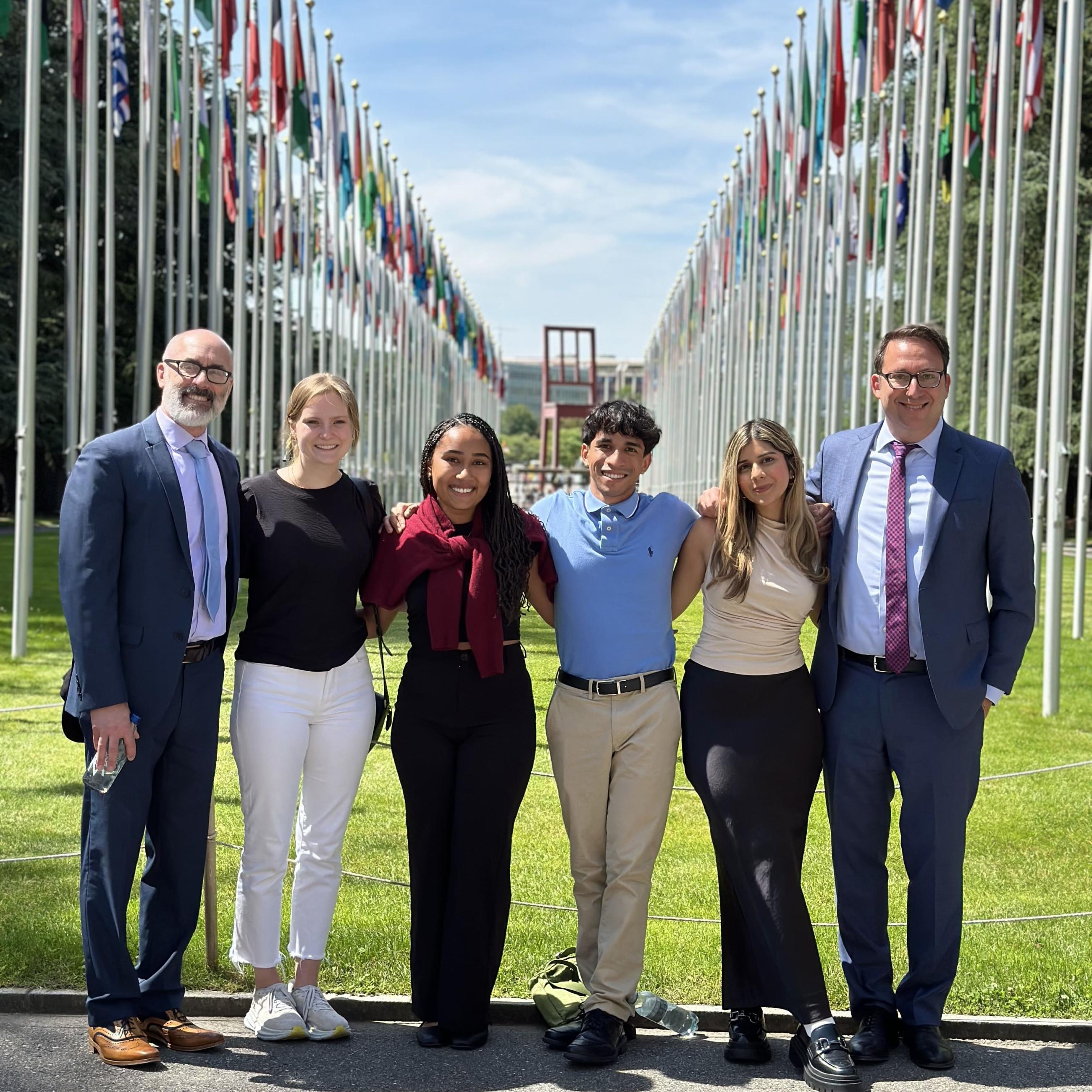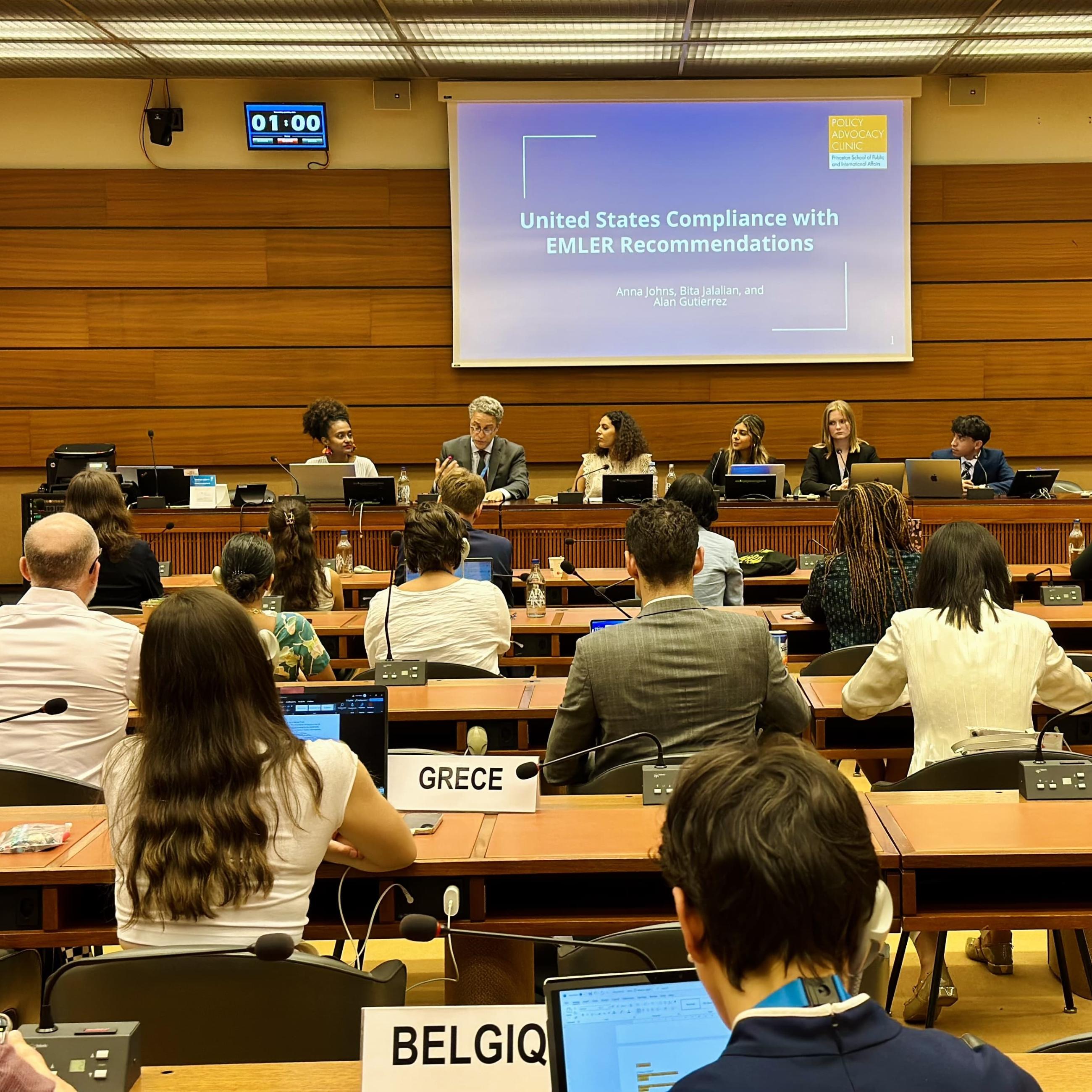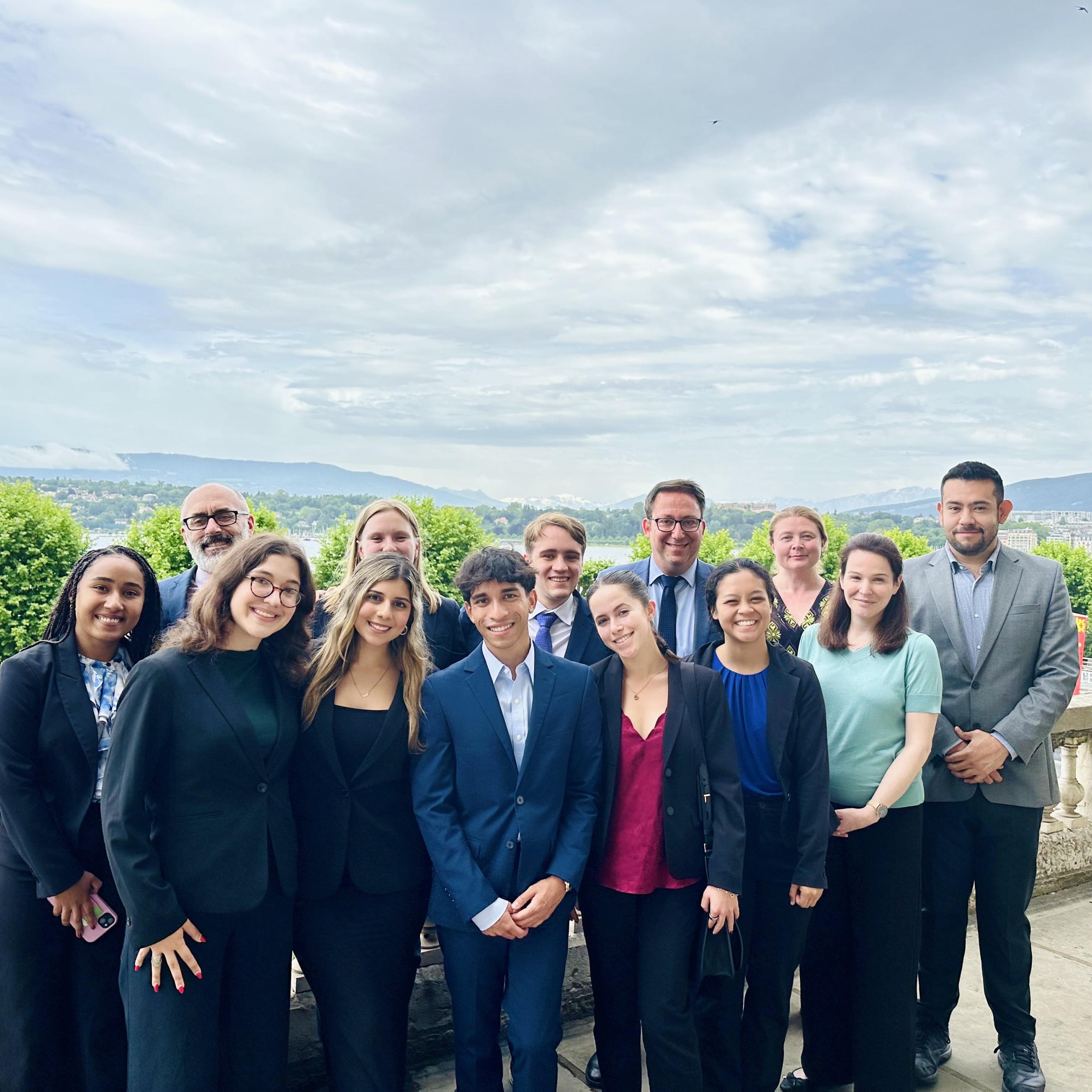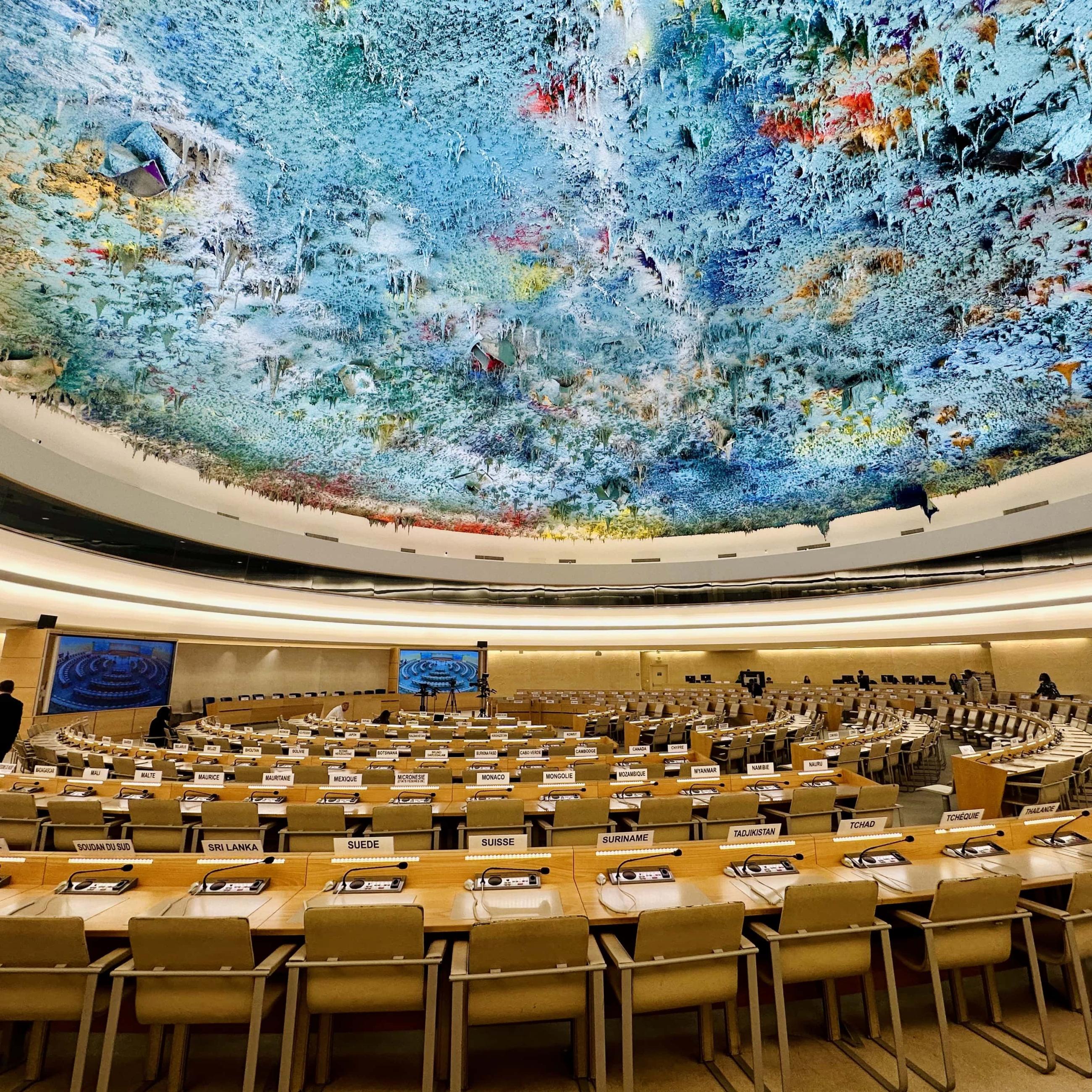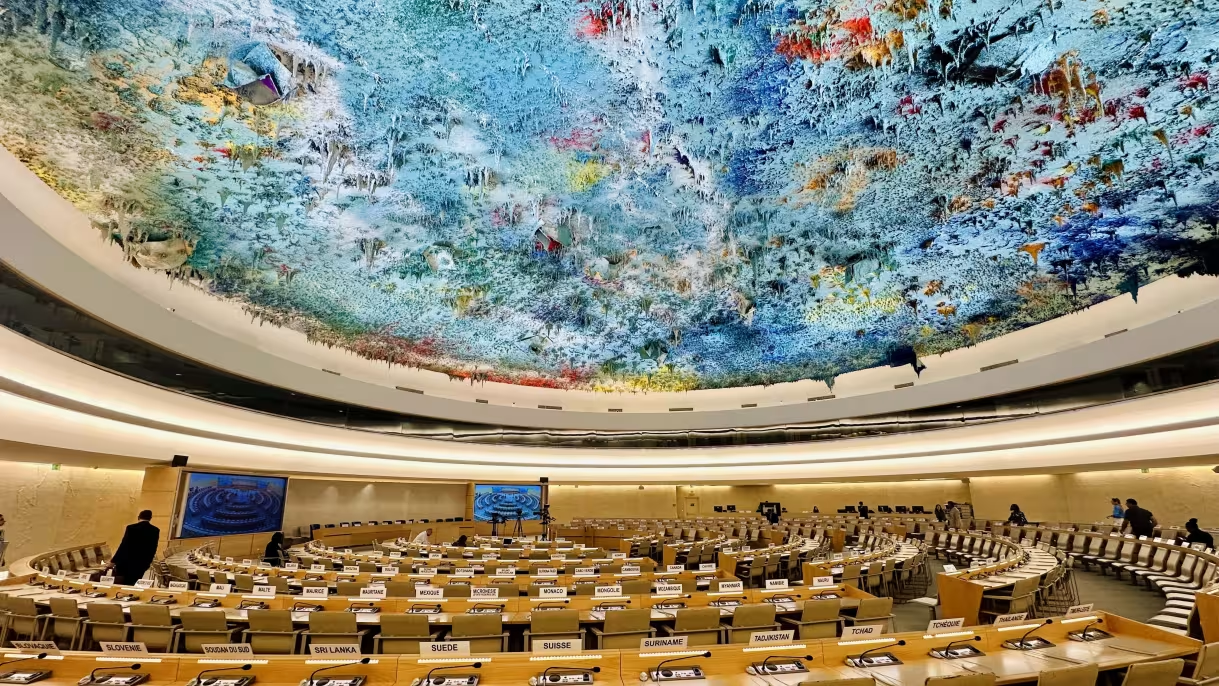

SPIA Undergrads Successfully Advocate for Extension of UN Expert Mechanism on Racial Justice in Law Enforcement
Princeton SPIA undergraduate students helped to successfully advocate for the United Nations Human Rights Council to extend the mandate of an experts' mechanism that seeks to advance racial justice in law enforcement around the world.
Last month, the Human Rights Council voted to reauthorize the Expert Mechanism to Advance Racial Justice and Equality in Law Enforcement (EMLER). The UN mechanism was created in 2021, following the police killings of Breonna Taylor and George Floyd, as a way of holding governments accountable for international human rights standards and responding to and redressing the issues raised by racial justice protestors. The renewal allows EMLER to continue that work for three more years.
This past spring, in collaboration with the American Civil Liberties Union’s Human Rights Program, students in Princeton’s Policy Advocacy Clinic traveled to Geneva, Switzerland, to support reauthorization of EMLER and to present the findings of their 137-page analysis of U.S. compliance with EMLER’s recommendations. These included review of policies in the federal government and in all 50 states on racial profiling, police use of force, felony disenfranchisement, drug criminalization, police data reporting, and more. During the Human Rights Council session, the students briefed UN staff, and SPIA undergraduate Bita Jalalian ’25 delivered an oral statement.
“Many in my generation participated in the summer of 2020 protests against racial injustices in the United States. However, the fight towards racial justice in law enforcement is far from over,” Jalalian told the Council, noting that 2023 was the deadliest year for police killings in more than a decade.
“With Black people continuing to face the disproportionate brunt of unfair policing practices, it is clear that EMLER’s work must continue.”Bita Jalalian ’25
The Policy Advocacy Clinic at SPIA is a highly intensive, yearlong course that immerses students in the policymaking process at the state, national, and international levels. In addition to the advocacy work for EMLER, students in last year’s program analyzed the impact of legislation pending before Congress to end the sentencing disparities between crack and powder cocaine, and investigated how the state of New Jersey addresses complaints of alleged police misconduct.
In the fall, students studied policy theory and analysis, legislative processes, campaign planning, and constitutional principles. During the spring semester, they applied those learnings in real-world advocacy campaigns. They conducted research, developed their findings, and learned how to present information in effective ways.
The Policy Advocacy Clinic was founded by Udi Ofer, the John L. Weinberg Visiting Professor and Lecturer of Public and International Affairs. Ofer, a former American Civil Liberties Union attorney with more than 20 years of experience as a civil rights lawyer, applauded the efforts of the EMLER team.
“The High Commissioner staff we met with were really impressed with the clinic students’ research and briefing,” he said.
The students also worked under the guidance and supervision of Jamil Dakwar, the director of the ACLU’s Human Rights Program, and were able to utilize various UN mechanisms to advocate for policy changes in the United States.
“The students have made valuable contributions to holding the United States accountable to internationally recognized standards on policing and racial justice,” Dakwar said. “I am grateful for their research and advocacy in Geneva, which helped inform the Human Rights Council about police reform efforts in the country.”
This was the second year that Policy Advocacy Clinic students worked on advocacy efforts with the United Nations. “Youth engagement today continues to inspire me with its vision, creativity, and energy,” said Volker Türk, the UN’s High Commissioner for Human Rights.
Paul Lipton, SPIA’s senior associate dean for academic administration, accompanied Ofer and the students to Switzerland and was impressed by what he saw.
“The impact of an academic program isn’t always obvious,” Lipton said. “In the case of our Policy Advocacy Clinic and Udi’s commitment to our students and this program, our students have shown that they can lead on important issues of global significance. Between their comprehensive 50-state analysis and outstanding presentations, our students left me in awe several times during our week in Geneva.”
Alan Gutierrez ’25 and Anna Johns ’25 joined Jalalian in conducting the research and presenting the findings.
“I am so grateful to SPIA and the Policy Advocacy Clinic for the opportunity to do hands-on policy work and present our robust research findings to the UN,” Johns said. “I hope that our research will inform the Expert Mechanism’s future work as it continues to advance racial justice in law enforcement.”
"I am grateful to have contributed toward successfully advocating for racial justice at the United Nations, alongside friends equally committed to advancing human rights," Gutierrez added.


